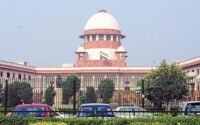UIGHUR MUSLIMS IN CHINA- IS THE BIG DATA PROGRAM TARGETING THEM?
This article is written by Ipsita Rout, 4th Year, KIIT School of Law, KIIT University and curated by Himanshu Raj of Chanakya National Law University, Patna.
INTRODUCTION
Xinjiang has significant numbers of Uighurs, Kazakhs and other predominantly Muslim tribes in the far north-western region of China. It is more analogous to Central Asia, geographically, linguistically and religiously, than the interior of China. In the middle of the region, the landscape is dominated by the vast Taklamakan Desert, numerous mountain ranges and typical oasis towns in the south. The region is rich in natural resources and has some of the highest reserves of oil in China.
Since it took over power in 1949, the Communist Party has controlled the area with a strong fist. Xinjiang is considered by many Uighurs as East Turkestan, a name shared between two short-lived independent republics which existed prior to the Communist revolution.
Chinese dominance of the area, which has seen an influx of ethnic Chinese refugees and a rise in controls on local language, culture and religion, has long been bridled by the Uighurs. Due to systematic ethnic discrimination, minority groups in Xinjiang complain they are not offered jobs or contracts.
BACKGROUND
Authorities have held 1 million or more people in Xinjiang detention camps, the most extensive mass incarceration program in the world since the Mao period. A wide variety of activities can lead to arrest, including acts of religious devotion, travel to some countries, breaches of birth laws, or the implementation of encrypted messaging applications for mobile phones. Authorities rejected the mass detentions at first. Then, by offering citizens work skills and Chinese language instruction, they acknowledged what they considered a vocational training initiative designed to curb insurgency, separatism and religious extremism. A rigorous prison atmosphere fraught with monotonous political indoctrination and, for many, terrorizing brutality and physical harassment by guards is characterized by those who were held in camps.
In 2019, the Chinese government said they had unwound the scheme and released most of those detained, a statement that researchers and advocacy groups received with broad suspicion. Although there were indications that some camps were closed and some of those detained were released, China has also continued to grow the region’s detention centres, especially high-security prisons. According to official figures released in 2019, the country has also undergone a historic surge in convictions, prosecutions and jail terms. Moreover, the Xinjiang job projects have been promoted by the government, including the relocation of workers within the city and to other areas of China, which analysts believe most likely entails repression and forced labour.
WHAT IS THE BIG DATA PROGRAM ABOUT?
Human Rights Watch (HRW) wrote in a study describing an extensive survey project that indigenous Uighurs in China’s Xinjiang were “arbitrarily” picked for arrest by a software program that flagged suspicious conduct. HRW (Human Rights Watch) said leaked police statistics, which reported more than 2,000 Aksu prefecture detainees, provided further confirmation of “how China’s brutal repression of Xinjiang’s Turkic Islamists is being turbocharged by tech.”
The list contains detainees identified by the Integrated Joint Operations Platform (IJOP) of a Chinese predictive analytic program, which gathers data and recognizes detention targets. It includes the names of the Xinjiang Uighurs, telephone numbers and explanations for detention in the so-called re-education camps system in China, including learning the Holy Quran, wearing religious attire or foreign travel. The Aksu list is the first time that we’ve seen the IJOP in action to detain people,” commented Human Rights Watch Maya Wang.
WHAT ARE OTHER COUNTRIES STATEMENTS ABOUT THE ACTIONS OF THE CHINESE GOVERNMENT?
In Xinjiang, the global reaction to repression has been relatively subdued, an indicator of China’s global impact. The U.S. has placed restrictions on economic activities, trade authorities and government agencies working in Xinjiang over the past year. The declaration of genocide is the sharpest statement so far. The same finding was drawn by a Canadian government last year.
Pompeo’s declaration could lead to new U.S. sanctions, but those choices will now be in the control of the Biden administration. One test would be whether the Biden government will seek to convince U.S. allies to endorse attempts to urge Beijing over its Xinjiang persecution in a way that the Trump government has not. Antony Blinken, Biden’s candidate for Secretary of State, suggested during his Senate confirmation hearing on Tuesday (19.01.2021) that the United States will try to pressure other nations for funding.
“When we are working with, not denigrating, our allies, that’s a source of strength for us in dealing with China,” he said.[1]
However, a lot of Western multinationals have established business relations with Chinese companies linked to the Xinjiang crackdown, such as the German corporation Siemens AG. Sweden has announced that it will grant the Uighurs of China refugee status in 2019.
Nearly two dozen developed countries named China in a letter to the United Nations High Commissioner for Human Rights in July to end the mass detention policy.
WHAT DOES CHINA’S TAKE ON ALL OF THIS?
China said in a statement to ICIJ media partner The Guardian that the camps are an important weapon in its fight against terrorism and do not violate religious freedom. After the steps were taken, no single terrorist attack has happened in the last three years. According to the statement released by the Chinese Embassy Press Office to the United Kingdom, Xinjiang is again turned into a stable, beautiful and peaceful region. The prevention steps had little to do with religious sects being eradicated. In Xinjiang, religious freedom is completely protected.
The credibility of the leaked documents was also denied by China, calling them “pure manufacturing and blatant propaganda.” It pointed to an official White Paper in which the Chinese government explains the purpose of the camps as providing assistance and recovery for those engaging in militant or extremist activities.
ANALYSIS AND CONCLUSION
After scrutinizing all the documents and evidence that are present today against the Chinese government towards the atrocities faced by the Uighur Muslims, one can certainly say that the government is actively suppressing this sect to ascertain political power and agenda. Economic sanctions and losing relations with other international trading countries has not stopped China from detaining these Muslims. And evidence of denial only proves that China has technology to target its prey, without having to disclose the targets. Therefore, this is a global issue, and it needs urgent attention of all the countries and United Nations to engage in private investigation to get to the bottom of this. Otherwise, soon the US claims of genocide of these Muslims will be reality and it will be too tragic a reality to take action upon and resolve. Our thoughts and prayers go out to the millions of Muslims who are still without voice in the dark struggling to survive.


